Tracking Techies: Finding the Footprints of America's Switched-on Lawyers
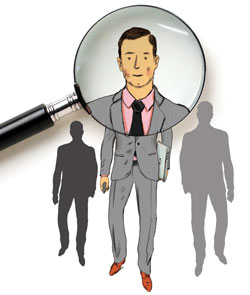
All illustrations by Peter Oumanski.
While the moniker “America’s Techiest Lawyer” may conjure an entity with a quad-core heart, onboard latte maker and a predilection to show up for court in holographic form, it turns out law’s real-life silicon wonders are a bit tamer than that.
But not by much.
During the past few weeks, the ABA Journal has been on cybersafari for the dukes and duchesses of the digital realm. And while we have no trophy lashed to the hood of our Jeep yet, we do have a much better idea of who we’re looking for—thanks to some expert hunting tips from gifted guides who, on another day, would be considered fair game.
Interviews with some well-known names in technology-enhanced law practice led us to a list—a sort of trait-based picture—of what would make an attorney one of the techiest lawyers (Photo Gallery) around.
Next time you find yourself with silicon stardust on your sleeve and you spin around to grab a look at law’s next big thing, chances are you’ll find your wunderkind possesses all, or at least most, of certain telltale markings.
While America’s techiest are polite enough not to froth at the mouth, they’re nevertheless afflicted with an insatiable technolust. Like kids scrambling to the jingle of the ice cream truck, they just can’t help themselves. Some might even call them rabid.
With every wave of new technology, they’ve seen their lives get better and their ability to engage with clients become quantum-enhanced, and they simply can’t wait to see how the next promising tool can be artfully mastered to bring about an even better world.
“I often feel that I’m working and moving at twice the speed of those around me,” says Barron K. Henley, a Columbus, Ohio, managing partner at Affinity Consulting Group. “It’s simultaneously gratifying and maddening. My children have called me ‘Mr. Computer-Head’ since they were old enough to talk—and they’re all teenagers now. I probably need a support group and medication.”
While none of America’s techiest has yet to send an Amisher on his way with a GPS-ready buggy and a better stable-cleaning app, he or she has come close. Their enthusiasm is infectious. When you’re curious, you’ll find that they’re always the first to tell you how things work, why things work and why they’re important.
“They are always on,” says Stephanie Kimbro, the Wilmington, N.C., founder of the virtual law office Kimbro Legal Services.
Switched on and fearless: When America’s techiest come upon a grinning Bill Gates armed with a whiteboard filled with hieroglyphic code, they sneer, “Is that all you’ve got?”
Reeling off lines of custom programming for a new application is easier than buttering a morning muffin for this breed. And the techiest have no problem sharing the finished creation with peers.
PC? Mac? Both are putty in their hands, as is any other gadget that proves itself worthy.
“I recently read about an attorney who utilized Skype or something similar to help Mexican citizens testify in a hearing involving their children here in Pennsylvania,” says Jennifer Ellis, vice president of Freedman Consulting in Lansdale, Pa. “I thought that was an impressive use of technology and a great savings … all around.”
Adds Henley, “Technology changes far faster than the law, and a true techie relishes this. They love to learn and can’t wait to try the next thing—and master it.” Still, living so close to the edge, America’s techiest are often perplexed by those who, by comparison, are so timid.
“I wouldn’t be too surprised to find a cave drawing somewhere that showed an attorney worrying about the ethics and security of a wheel,” Ellis says.
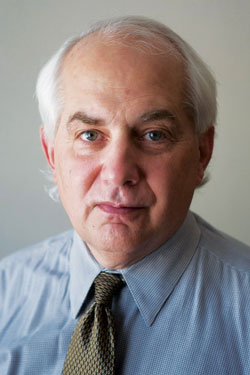
PAUL MANSFIELD: “When my wife passed the bar exam and started working in the early 1980s, I was shocked by the low-tech nature of law firms. Using her firm as a lab, I started pushing for higher standards and broader adoption—that is, PCs for attorneys, not just secretaries.”
Agrees Paul Mansfield, president of Paul Mansfield Consulting in Corrales, N.M., “I am still amazed that firms do without [document management] or practice management systems. I thought that might be age-related and that older attorneys would be replaced by younger ones more tech-savvy. But that’s not the case. I think law schools need to do a better job of teaching law students how to leverage technology in their practice.”
Possessed of the firm belief that anyone who even remembers the IBM Selectric should be put down, America’s techiest lawyers can never be caged.
Outfitted with any combination of smartphones, laptops, iPads, portable scanners and the like, they might be found humming Born Free under their breath like it’s the first time they’ve heard it. More often than not, they cruise through their day with a salt breeze rustling their hair and a pair of shades at the ready.
“I can be online wherever I am with my iPad and iPhone,” says Richard Granat, president of DirectLaw, based in Palm Beach Gardens, Fla. “Some times, I practice law and serve clients in Maryland when I am on the beach in Florida.”
And the techiest strive to skillfully blend as many useful and complementary technologies as they can get their hands on. They don’t simply have a website; they have a secure portal where they can meet virtually with clients and work equally effectively via phone, video-chat or email.
Take the clients of Granat Legal Services, a virtual law practice. They “have their own, secure client space where I can communicate with them securely wherever I am,” he says. “Communications can happen at any time of the day and night. All my records are online. All my law books and materials are in digital format.”
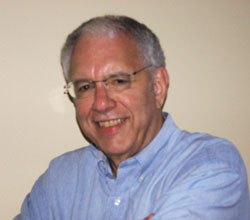
RICHARD GRANAT: “Over time, new methods of practicing law based upon information and Internet technology will permanently change the practice of law—not only in America but worldwide.”
The upshot? “A client portal saves me enormous amounts of time and enables me to make a profit even though my prices are low.”
Just as every facet of the Web presence of America’s techiest is tricked-out technologically, so is every aspect of their core business. For this beast, feeble attempts and half-finished efforts are best left for chumps.
“I don’t think a lawyer qualifies as the techiest lawyer unless the core process that underpins that particular type of practice has been automated and, where appropriate, that core process has to be Web-enabled,” Granat says. “To go a step further, if you are a litigation lawyer and you don’t use automated litigation support methods, you may be guilty of malpractice.”
Something the techiest hate as much as malpractice is missed (not just mis-) communication. Facebook, Twitter, YouTube and other forms of social media long ago moved from country road curiosities for America’s techiest to their lifeblood lane. Facebook alone plays host to 800 million-plus people worldwide. And America’s techiest know that when fishing, you go where the fish are.
“Many of these tools can help lawyers and clients work together toward a mutual win-win that was rarely possible in the past,” says Matt Kesner, the Mountain View, Calif.-based chief information officer at the law firm of Fenwick & West.
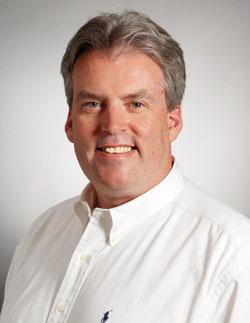
MATT KESNER: “My personal mission is to bring the best of technology to the practice of law to improve the outcomes for clients.”
MARKET MAVENS
Meanwhile, those grunts you hear as one of America’s techiest swooshes by you are the black-belt moves he or she is making to interweave all these forms of social media into an all-encompassing marketing dynamo. The techiest are always ready to take the latest flavor-of-the-social-media-month for a spin.
But to be among the techiest also means never overlooking the basics. That means maintaining a blog that quotes and is quoted by one’s peers. And developing a search engine optimization discipline that ensures every new content morsel of the Web presence gets gobbled up by Google and others for optimum placement.
And optimum placement for all this work? America’s techiest are busy up in the cloud. They’re already zooming around the stratosphere, tapping into the countless supplies of state-of-the-art applications. The relentless, single-minded mantra “faster, cheaper” is never far from the techies’ consciousness.
Sure, like many, they were a bit bothered at first by cloud security issues. But they’re lawyers, after all, and they were sure to put their provider’s feet to the fire before signing on the dotted line. And they still stop by now and then to make sure everything’s still nice and toasty. Says Kimbro: The techiest lawyers “can easily pick up different cloud-based platforms.”
Young at heart enough to be committed to the greater good and mean it, America’s techiest are stalwart supporters of open-source code. They regularly contribute efforts to software that can be shared—and enhanced—by all. “They will be the first to be comfortable experimenting with open source,” says Kimbro.
Yet despite their indisputable technological prowess, America’s techiest lawyers are the last to strut about with the latest technology like a peacock marooned on a hog farm. They know that technology is first and foremost a tool, and that it should always be used for good and not evil. Says Affinity’s Henley: “Lawyers who carry around a laptop, an iPad and two smartphones are just being ridiculous.”
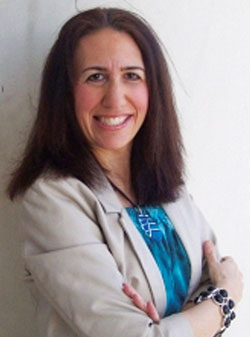
CAROLYN ELEFANT: “A lawyer is too techie when he or she allows technology to dictate decisions rather than the other way around.”
Adds Carolyn Elefant, a Washington, D.C., solo specializing in federal energy practice and policy, “Lawyers who boast about the tech they use are just posers. Those who make it seamless or invisible, to me, are the techiest. They use tech as seamlessly as lawyers of my generation used legal pads and engraved stationery.”
America’s techiest don’t go gaga for new tech simply because it’s shiny and new or because someone told them it’s cool. They’ve graduated from high school, thank you, and they’re not in a hurry to go back there. They know Shinola from that other stuff.
They ensure that any piece of tech to earn a place of honor in their arsenal endures a vetting that would make SEAL Team Six proud. And at any moment, they’re more than happy to vet and vet again.
“It’s less about the particular tools … and more about the philosophy of looking to technology to solve problems that have traditionally been solved by other means —or not solved at all,” says Erik Mazzone, director of the Center for Practice Management at the North Carolina Bar Association. “I have too many lawyer clients who have an iPad because it’s the ‘right thing to have’ and makes them look hip. But they are clueless on how to use it.”
“Every time you add a new technology it takes time to learn how to use it and how to incorporate it into your practice,” chimes in Nicole Black, a Rochester, N.Y., lawyer and legal technology author who blogs at lawtechtalk.com. “If you’re constantly doing that, it can interfere with your workflow.”

DENNIS KENNEDY: “What I find to be distinguishing… would be the best techie lawyers’ understanding and use of the Internet, including cloud computing, social media and collaboration tools, as well as traditional search and use of other Internet resources.”
STILL HUMAN
Cursed with these superhuman abilities, America’s techiest nevertheless understand that there are other lawyers on the planet whose hearts don’t skip a beat when an overnight delivery shows up with Apple’s latest iPhone. And that—to paraphrase Stuart Smalley, that great icon of serenity from Saturday Night Live—is OK.
“A good techie lawyer is one who understands that not everybody is, wants to be or needs to be at her level,” Ellis says. “She encourages and supports people to move forward, understanding that not everyone loves and is comfortable with technology.”
All in all, no matter how many paradigm shifts or quantum leaps, America’s techiest never lose that childlike wonder that comes from living in an age when all things truly seem possible, an age when a lawyer can carry more computing power in her pocket than was needed to land a man on the moon. An age when a person on one continent, by using Skype, can see and share experiences with a person on another continent in real time.
An age when a teenager in Egypt, who is sick and tired of being sick and tired, grabs a smartphone, runs out into the street and overthrows a government.
“We are at the cusp of great change,” says Ellis.
Agrees Black: “We’re in the midst of a seismic shift. This conclusion is, I think, indisputable.”
And, says Dennis Kennedy, a St. Louis-based legal technology author, “Ten years ago, you might have been able to dabble with the Internet. Today, you must live and breathe the Inter net. The computing power in your hands, literally, today is staggering compared to what we had 10 years ago. Our imaginations, more so than the technologies, have become the limitations.”
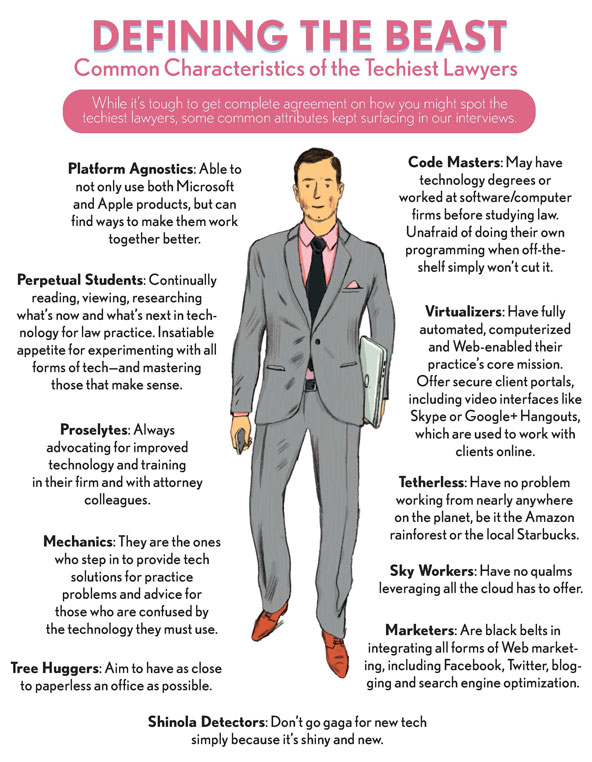
Correction
Due to a dispute over who made the nomination, the name of a nominator was removed from the profile of Matthew Muller in the "Tracking Techies" gallery.Joe Dysart is a freelance writer based in Manhattan.




